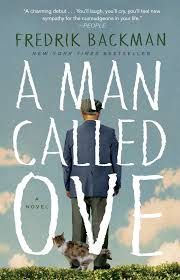
The rom-com: The Rosie Project by Graeme Simsion.
Genetics professor Don Tillman has looks, brains, a successful career, and no social skills. When Don decides he is ready to get married, in spite of a history of first dates and no second dates, he decides to approach the matter scientifically with a sixteen-page survey to weed out all undesirable women. As he embarks upon the Wife Project, a meddling colleague and friend asks him to help Rosie, a bartending grad student, find her biological father. Naturally, the Wife Project and the Father Project are meant to collide. The Rosie Project is charming and fun and just different enough from your standard romantic comedy.

The culinary love story: Like Water for Chocolate by Laura Esquivel.
This novel tells the story of the de la Garza family, where the youngest daughter is expected to remain unmarried and care for the mother until her last days. Tita, as the youngest daughter, is forbidden to marry her love, Pedro. Instead her mother marries off Tita’s older sister to Pedro. Tita is outwardly obedient to her mother, but her emotions come out through her cooking, resulting in poisoned wedding cakes and aphrodisiac quail recipes. Tita’s recipes provide structure for the novel, with each chapter beginning with a recipe that will be central to the story.

True love lost: A Man Named Ove by Fredrik Backman.
Fifty-nine-year-old Ove is the curmudgeon next door. He is the neighbor who will tell you when you haven’t disposed of your trash properly or if he doesn’t care for your car. But Ove was once a young man who took the train two hours in the wrong direction every day just to spend time with the woman who would become his wife. And while Sonja was alive, she was all the color he needed. With Sonja gone and retirement forced upon him, Ove’s life has lost both its joy and its purpose, and he wakes each day resolved to kill himself at last. Life has other ideas for him in the form of unwanted new neighbors and an unwanted cat. Soon Ove must once again become the man Sonja always knew him to be: “the strangest superhero.”
(The story of a widower is admittedly a strange choice for a Valentine’s Day reading list, but I found the love story of Ove and Sonja, told in chapters that alternate with the main storyline, to be extraordinary.)

The darker Valentine: Fates and Furies by Lauren Groff.
Because sometimes one is not in the mood for a fluffy Valentine’s Day read. This novel covers 20 years of marriage between Lotto and Mathilde. In college, Lotto is a womanizer, and Mathilde is studious and keeps to herself, spending her weekends modeling. Lotto and Mathilde begin dating just before graduation and impulsively get married. Told from Lotto’s point of view for the first half and Mathilde’s for the second, Fates and Furies is not an optimistic or idealized view of marriage, but more of a look at loyalty and betrayal in the murkier areas of life. It’s love story with complications. And secrets upon secrets.

The classic: Pride and Prejudice by Jane Austen.
Mistaken first impressions are a common starting point for light-hearted romances, but I doubt it has ever been done quite as well as in Pride and Prejudice. Miss Elizabeth Bennet initially loathes Mr. Darcy. He snubs her at a dance and discourages his close friend from proposing to Elizabeth’s shy sister, Jane. Mr. Wickham, a soldier, confirms Elizabeth’s suspicions with stories of lifelong wrongs from Mr. Darcy. In time, Elizabeth learns she’s trusted the wrong man and her own incorrect impressions. Like all of Austen’s novels, Pride and Prejudice has perfectly developed characters and understated wit. However, it has something that the other novels lack. That “something” is, of course, Mr. Darcy.
 Michigan housecat, Tim Gunn, has declared his goal to sleep on every single book in his suburban home.
Michigan housecat, Tim Gunn, has declared his goal to sleep on every single book in his suburban home.





